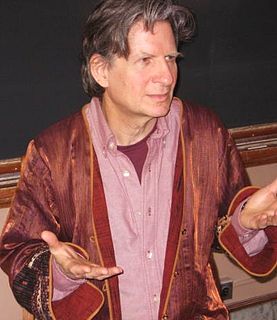A Quote by Georg C. Lichtenberg
The most heated defenders of a science, who cannot endure the slightest sneer at it, are commonly those who have not made very much progress in it and are secretly aware of this defect.
Related Quotes
It surely can be no offence to state, that the progress of science has led to new views, and that the consequences that can be deduced from the knowledge of a hundred facts may be very different from those deducible from five. It is also possible that the facts first known may be the exceptions to a rule and not the rule itself, and generalisations from these first-known facts, though useful at the time, may be highly mischievous, and impede the progress of the science if retained when it has made some advance.
Your remarks upon chemical notation with the variety of systems which have arisen, &c., &c., had almost stirred me up to regret publicly that such hindrances to the progress of science should exist. I cannot help thinking it a most unfortunate thing that men who as experimentalists & philosophers are the most fitted to advance the general cause of science & knowledge should by promulgation of their own theoretical views under the form of nomenclature, notation, or scale, actually retard its progress.
The most remarkable discovery made by scientists is science itself. The discovery must be compared in importance with the invention of cave-painting and of writing. Like these earlier human creations, science is an attempt to control our surroundings by entering into them and understanding them from inside. And like them, science has surely made a critical step in human development which cannot be reversed. We cannot conceive a future society without science.
The history of science, like the history of all human ideas, is a history of irresponsible dreams, of obstinacy, and of error. But science is one of the very few human activities-perhaps the only one-in which errors are systematically criticized and fairly often, in time, corrected. This is why we can say that, in science, we often learn from our mistakes, and why we can speak clearly and sensibly about making progress there. In most other fields of human endeavour there is change, but rarely progress ... And in most fields we do not even know how to evaluate change.
Love is a chemical reaction, but it cannot be fully understood or defined by science. And though a body cannot exist without a soul, it too cannot be fully understood or defined by science. Love is the most powerful form of energy, but science cannot decipher its elements. Yet the best cure for a sick soul is love, but even the most advanced physician cannot prescribe it as medicine.
One can truly say that the irresistible progress of natural science since the time of Galileo has made its first halt before the study of the higher parts of the brain, the organ of the most complicated relations of the animal to the external world. And it seems, and not without reason, that now is the really critical moment for natural science; for the brain, in its highest complexity-the human brain-which created and creates natural science, itself becomes the object of this science.
I think most of us secretly know – and those of us at the radical middle are inclined to say – that without such concepts as duty and honor and service, no civilization can endure. ... I suspect most Americans would respond positively to a [draft] if it gives us some choice in how to exercise that duty and service. ... Exactly the kind of choice my generation did not have during the Vietnam War.
We need to make sure that the laws we're passing are protecting people. And we should not be voting against something that makes progress just because it doesn't make as much progress as we'd like to see made. As much as I might like to see any number of issues progress in larger steps, I understand that some of these things happen in smaller steps. And so for that reason, progress is progress. And success is success.
No advance, no progress can be made beyond these propositions. If anyone wishes to deny their truth or their soundness, the only direction in which he can proceed historically is not forward, but backward toward a time when there was no equality, no rights of the individual, no rule of the people. Those who wish to proceed in that direction cannot lay claim to progress. They are reactionary. Their ideas are not more modern, but more ancient than those of our Revolutionary ancestors.




































